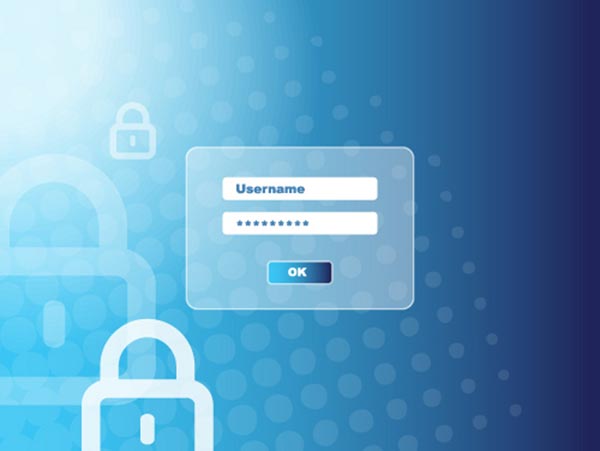In an age where we live our lives, mostly, digitally, it’s become commonplace to have online accounts and sign up to apps, but those require you to set up a password to keep your account secure. According to Gov.uk, throughout 2023 so far there have been approximately 2.39 million instances of cyber-related crime.
The same source also claims that most cyber crimes are unsophisticated, but prey on things like: password insecurities, penetrable network firewalls and failing to update or renew security software. Where these are problems that mostly affect the commercial sector, domestic internet users are also falling victim to cyber crime.
My London states that cyber criminals hacked around 2 million people to steal their personal data and to, subsequently, gain access to their online bank accounts. In April 2023 alone, according to the same source, police arrested 31 people in connection with cyber crime incidents. Part of gaining access to various accounts, no matter what they might be for, is password hacking.
The best thing you can do to protect yourself online is to ensure you have a solid and secure password that you can remember without writing it down. With this problem still prevalent in today’s society, we’ve shared some of our top tips for making a robust password that will have the most devious of hackers scratching their heads
1. Ensure your password is as long as possible
Short passwords are something you should steer clear of if you’re wanting to make sure that it won’t be guessed or quickly deciphered. The idea is to make your password as difficult to find out as possible, and part of that is choosing a word or phrase that is relatively long. Don’t make it too long, because some accounts will only let you put in so many characters, but if there’s no limit on character length, then make sure you choose something that is random, long and nonsensical.
2. Make it a nonsense word or phrase
According to the Huffington Post, the most commonly-used passwords are something simple, like ‘1234’ and ‘password’. This is not considered to be a safe or secure password. Anything that is easy to guess or the use of common words in your passwords would be easily deciphered and subsequently used to exploit your online account.
The general rule when choosing a password that cannot be guessed would be to choose random words and phrases, something that means nothing to you or correlates to your life in any way. But we’ll touch on including personal information or data in your passwords later on in this article.
3. Include numbers, symbols & uppercase letters
Part of making sure you’re choosing a password that makes no sense includes throwing some special characters, uppercase letters and a few numbers into the mix. Make sure the numbers don’t mean anything to you, like a birthday, and add the capital letters randomly throughout the password.
You can do the same for special characters, scattering them along the words or phrases as you go. Often, people will use ‘$’ instead of an ‘s’, an @ instead of an ‘a’ or a ‘!’ instead of an ‘i’. Make the password as confusing as possible, but make sure it’s something that you will be able to remember without writing it down.
4. Don’t include any personal information
We’ve already touched on making sure that you do not include any personal information or data, such as a birthday or the year you got married. This is because this sort of thing is in the public domain. People will be able to find out those things about you through social media or even your CV if it’s visible online. Choose numbers that have no correlation to you or your family.
You should also refrain from using the place name where you live or have lived because, again, this is something that someone will be able to find out about you online, especially seeing as Facebook will display this information, if you wish. This goes back to the point of creating a password that is completely nonsensical. Also, don’t forget to make sure that your password is also relatively lengthy, along with ensuring it makes little sense to anyone else.
5. Refrain from reusing your passwords
SecureAuth claims that 92% of people asked will use the same password for multiple different accounts. Where this might be useful in terms of remembering your passwords, and ensuring that you can always access your accounts, you should never reuse your passwords. You should always choose a different password for every account you have, even if it’s for your online food shop or an online newspaper subscription. While it’s a convenient option for many, it’s definitely not worth the risk.
If someone hacks your online shopping account and lifts the password from there, which just happens to be the same password you use for your online banking, then you’ll be inadvertently opening a can of worms and the hackers will have a field day. Always make sure that you use individual passwords that are difficult to guess for every account you have that exists in the digital world. This will help to project your online presence even more.
6. Change your passwords regularly
Don’t keep the same password for the same account for very long. According to McAfee, you need to be changing your password every three months. This is to make sure you keep the hackers guessing. You should never write them down and don’t come back and reuse old passwords either. Ensure they’re brand new every time and do this for all of your online accounts to be absolutely sure. This gives you peace of mind that your accounts will be protected whilst leaving the hackers running in circles.
ICU IT are computing specialists who are able to offer our clients, both domestic and commercial, the best possible advice and expert guidance with regards to protecting your accounts online. With round-the-clock IT maintenance services together with IT support and cloud hosting services, to name just a few of the IT services we have available, you can rest assured that you’ll be in safe hands when choosing ICU IT to manage your IT systems. For further information about how we can help you today, get in touch with a member of our friendly, professional team – we’re always pleased to hear from you.









